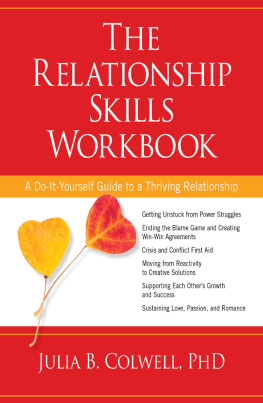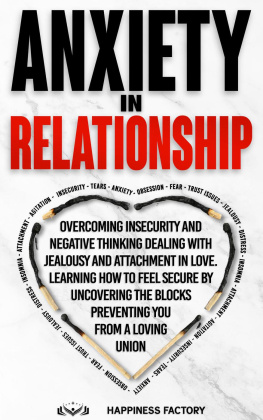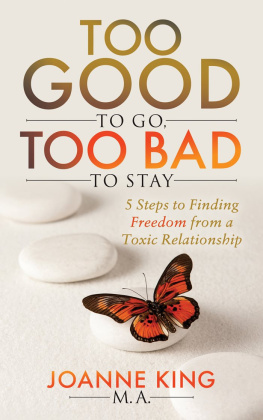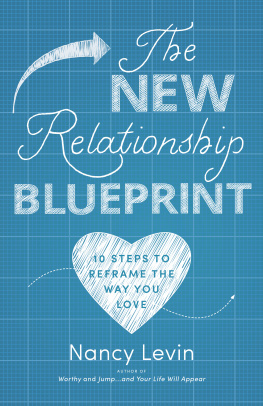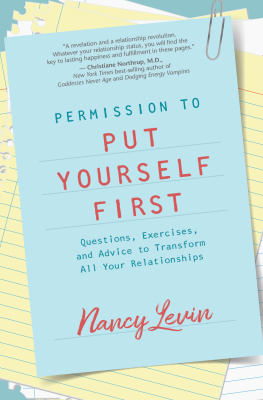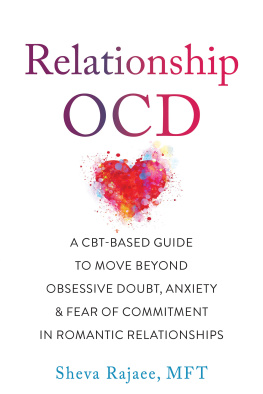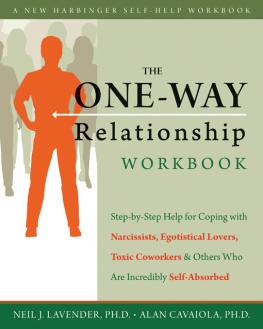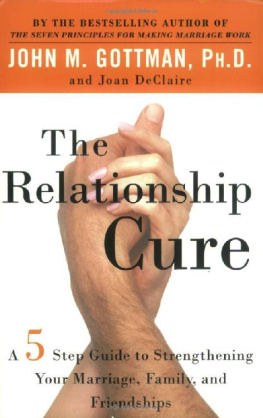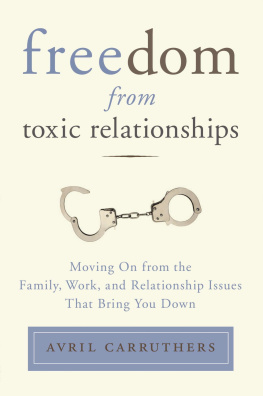

To Katie and Gay Hendricks. What Ive learned from you
has transformed every moment of my life.
And still, after all this time, the Sun has never said to the Earth,
You owe me.
Look what happens with love like that.
It lights up the sky.
RUMI
CONTENTS
TOOL KIT EXERCISES
ACKNOWLEDGMENTS
As I look back through my journey to understanding what I do about relationships, I see a long line of wise teachers. I communed with many of those through their written words, taking in their ideas as I was soaking up their expanded energy. Meanwhile, my heart is full as I remember the therapists, guides, and teachers with whom I had the good fortune to physically share time and space. I am awed at being on the planet at the same time as people of this depth, intellect, and magnificence of soul.
I am forever grateful to my beloved mentors and teachers, Kathlyn and Gay Hendricks, for their wisdom, mastery, and love in educating me about conscious relationships. This workbook is based heavily on what I have embodied from their transformational teachings. Youll see where Ive adapted and included exercises of theirs in this workbook that Ive found to be particularly powerful. There are many people writing today about the need to expand our consciousness; Gay and Katie have provided a crucial missing piece, creating revolutionary tools that provide the how behind such a monumental task.
I would also like to thank my other guides: Gail Kali, Ethel Greene, Barbara Green, Lin Harden, Ellen Maslow, and Barbara Griek for their knowledge and direction. I am grateful to my wonderful editor from Sounds True, Haven Iverson; to Tami Simon, for her vision of there being a place in the world for this sort of relationship book; and to the welcoming and high-powered Sounds True family. Finally, I offer deep gratitude and appreciation to my supportive friends and family, to the hundreds of clients who allowed me to share their journeys through their deepest sorrows to their greatest triumphs, and to all of the co-creators, participants, and colleagues of the Boulder Center for Conscious Community.
Now, I want to acknowledge my greatest teacher of all, my spouse Kathryn Kucsan. Kath has so many qualities that have created space for my deepest learning: her playfulness, whimsy, and ability to laugh at the height of our serious conversations; her many-dimensioned intellect and ability to ask the biggest questions; her connection to invisible and other nonhuman worlds; her willingness to face into the deepest truths, no matter how painful; and her huge heart. As I write, I feel overwhelmed by the power of her inner universe, and feel grateful to have inhabited it with her. It is her extraordinary grit and determination, though, that I see as pivotal in keeping us on the path when the lessons were the hardest and I most wanted to flee. During our darkest times, she carried the torch of the possibilities that were over on the other side of the mountain.
Kath also knew from the very beginning that we had work to do together. She urged me to write our story down so that others could benefit from what we had learned. The first version of this workbook, called Choosing Love: Pathways to Conscious Relationship, was our venture into sharing our experiences and most valuable lessons. Youll hear the echo of Kaths strong, sweet voice and loving, open heart in the pages of The Relationship Skills Workbook. I know that it is her hope, as it is mine, that you will benefit from what weve learned together. As weve traveled through times of bliss, times of challenge, and ultimately, always, deeper reconnection, we have discovered a place of co-creativity and expansion, of daily joy and connection, and a level of openness where anything and everything is possible.
INTRODUCTION
I was in my early thirties when I finished my PhD in clinical psychology. In the weeks before graduation, I began a relationship. Since Id been to graduate school, I imagined I had an advantage in sorting through the ins-and-outs of intimacy. But with all of the knowledge Id learned in those five years of school, I was a rank beginner in understanding how to move through the power struggles I was creating. Thats how I got to the brink of ending one more relationship on a fateful day, sitting on the floor across from my partner.
As a newly minted psychologist, I put my time in at the local mental health center while I started my private practice. By this time, Id done quite a bit of personal therapy, which I continued as I viewed myself as an anxiously depressed person who occasionally stumbled on good days. I relied on my mind to make sense of my inner world, not understanding that I was putting the fox in charge of the chickens. And I, frankly, had no idea if Id be able to create a relationship that Id want to stay in.
I felt nervous seeing clients, and I relied on my excellent education in talking to people about what ailed them. Along the way, some couples came to me. I found myself falling back on one of the only couples therapy techniques I was aware of: reflective listening. I patiently taught each person to paraphrase the other, with the extra words of thoughtfulness, What I heard you say is... and Did I hear you correctly?
I did notice the small problem of not being able to actually use these skills myself. When I got angry, the last thing I wanted to do was paraphrase. I was reactive. I wanted to lash out, be right, get my point across. I figured that I just had to get better at it, that Id learn that paraphrasing thing at some point in time. The couples I was seeing sat with me, dutifully parroting the words I said. When they came back and reported that they werent able to listen, let alone reflect, we all chalked it up to them needing more time to practice.
During this time of lukewarm success, I stumbled on a book called Conscious Loving by some authors Id never heard of, Gay and Kathlyn Hendricks. I was drawn to the subtitle: A Way to Be Fully Together without Giving Up Yourself. I had devoted my time in graduate school studying related ground, that is, the dynamics of merging and disengagement in couples, so I decided that these Hendricks people must be kindred spirits. I read the book with mild interest and started trying out some of the tools with couples, and was intrigued by how they seemed to actually be using them. I brought the book home, and my partner (a musician who must have been weary of the ways I was trying to improve her and us) actually read it. Weeks later, we were in one of those arguments that had become ever-too-common, and way too familiar in my sense of frustration, defensiveness, and ultimately, helplessness to shift. I sat on the floor, leaning against the wall, my arms tightly crossed in front of me. I glared at my partner, my jaw clenched. We had been at this for a while, and now were at a familiar stalemate.
I have no idea what we were fighting about. But I do know what I was fighting for my voice, my place, my legitimacy. I wasnt willing to back down. I knew the price of losing the battle, so I kept at it. Maybe I gave up some ground here and there, but I would recapture it with my next snide comment or attack of logic.
As we sat there in silence, I felt a familiar doom. I had been through this before in previous relationships: the shutting down that led to the end. I started calculating: I was thirty-five years old and had been in this relationship for four years. We probably had another year to eke out before we called it quits. If I lived until seventy-five and every relationship lasted five years, how many more relationships would I have before I died?
Next page
